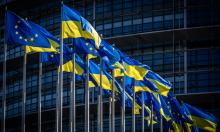Becherovka Claimant Arrests Pernod Ricard
The claim against the French company is evaluated in $4 million
Police officers unexpectedly arrived at the Moscow office of the French alcohol-producing company Pernod Ricard last week. They presented an act of execution, which said that some man named as Zdenek Hoffman claimed four million dollars from Pernod Ricard Russ, since the company violated his rights on trademarks for the well-known Czech alcohol beverage Becherovka. 
As a result, Pernod Ricard's representative office (which also sells Martell cognac, Jamison and Chivas Regal whiskey, Olmeca tequila, as well as the production of Armenian cognac company and Georgian wine-making firm GWS) was arrested at the end of last week. Arrested accounts and production of the company totaled two million dollars.
It was not the first time, when Pernod Ricard had to deal with Mr. Zdenek Hoffman. This man tries to prove (in Czech republic, Slovakia and Russia) that his ancestors allegedly obtained a gift certificate from Jan Becher in 1939 for such trademarks as Jan Becher Carlsbat, bottle and label. Zdenek Hoffman believes that the gift certificate makes him the only owner of Becherovka trademark. However, the factory Jan Becher - Karlovarska Becherovka (JBKB) was nationalized after WWII, while it is Pernod Ricard that owns 89 percent shares of this factory nowadays.
In 1997 Zdenek Hoffman went to court in order to obtain the legal confirmation of his rights as the heir. Spokesman for Pernod Ricard, Sergey Shevyrev, the head of the law firm Shevyrev and Partners, says that the Czech court issued a certificate, which was then taken as a ground for Rospatent to register trademarks Jan Becher Carlsbat, bottle and label. Rospatent explained the decision as follows: all trademarks of the company JBKB (in all countries, including the Czech republic and Slovakia) were reregistered in Zdenek Hoffman's name. When trademarks were registered in Russia, Hoffman went to the Arbitration Court in the Russian city of Krasnodar. As it often happens in Russia, Pernod Ricard learned of the court's decision after the actual event, when the company received the act of execution in the sum of four million dollars.
Lawyer Andrey Goltsblat says that such occasions have become more frequent after the introduction of the new Code of Arbitration. Large companies suddenly get a very expensive act of execution that was issued by a first instance of the arbitration court. It became very easy to arrest accounts of a company, because it is very easy to overcome the conditions, which are necessary for making a decision. Even if a large company manages to prove at court that the judge was wrong, it is not known, if the company manages to get its money back. This question is still open in the story with Becherovka.
Russky Fokus
Subscribe to Pravda.Ru Telegram channel, Facebook, RSS!





